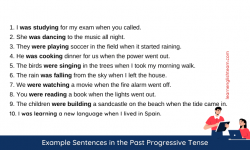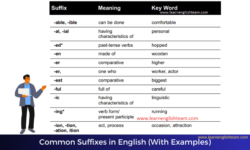Conditionals and Mixed Conditionals in English (PDF)
In this lesson, we will explain the conditionals and mixed conditionals in English. There are several structures in the English language that we call conditionals or if conditionals. Conditionals in English refer to sentences that express a conditional relationship, where the outcome of one event depends on the occurrence of another. They are typically expressed using “if” clauses.
Conditionals in English
Conditional sentences have two parts -if clause and the -main clause. There are four main types of conditionals in English:
Zero conditional: Used to describe facts or general truths.
Formula: (If + present simple, present simple)
Example: If someone prays for success, God shows them ways to be successful . (present simple in both clauses)
First conditional: Used to describe a possible future event, given a certain condition.
Formula: (If + present simple, future simple)
Example: If it rains tomorrow, I will not go to school. (present simple in first clause, future simple in second clause)
Second conditional: Used to describe an imaginary or unlikely situation in the present.
Formula: (If + past simple, would + infinitive)
Example: If I won the lottery, I would buy a new house. (past simple in first clause, conditional form in second clause)
Third conditional: Used to describe an event in the past that did not happen.
Formula: (If + past perfect, would have + past participle)
Example: If I had studied harder, I would have graduated from the university.
(past perfect in first clause, conditional perfect in second clause)
See the table below for a guide on which conditional to use depending on how certain it is:
| Type of Conditional | Certainty |
| Zero conditional | 100% – will always happen |
| 1st conditional | 50%~90% – will probably happen |
| 2nd conditional | 1%~40% – can happen, but probably won’t |
| 3rd conditional | 0%- impossible, can’t happen because in the past |
| Type of Conditional | Formula | Example |
|---|---|---|
| Zero Conditional | If + present simple, present simple | If you heat water, it boils. |
| First Conditional | If + present simple, future simple | If it rains, I will stay at home. |
| Second Conditional | If + past simple, would + infinitive | If it rained, I would stay at home. |
| Third Conditional | If + past perfect, would have + past participle | If it had rained, I would have stayed at home. |

Check Also:
The Eight Parts of Speech in English (PDF)
Free English Grammar Books (PDF)
Learn 12 English Tenses with 36 Example Sentences
Mixed Conditionals in English
Mixed conditionals in English are a combination of two different conditional forms, where the “if” clause is in one form and the main clause is in another. They are used to talk about hypothetical or imaginary situations that are based on both present and past events. Here’s a table showing the formula for mixed conditionals in English:
| Type of Mixed Conditional | Formula | Example |
|---|---|---|
| Second Conditional + Present Result | If + past simple, would/could/might + present simple | If I had taken that job, I would be rich now. |
| Third Conditional + Present Result | If + past perfect, would/could/might + present simple | If I had studied more, I would have passed the exam, but I wouldn’t be working in my current job now. |
| Third Conditional + Future Result | If + past perfect, would/could/might + future simple | If I had gone to college, I would have gotten a better job, but now I will never have that opportunity. |
It’s important to keep in mind that the order of the clauses in a mixed conditional can impact the meaning of the sentence.
Conditionals & Mixed Conditionals PDF
Conditionals Exercises PDF – download
Mixed Conditionals Exercises PDF – download



